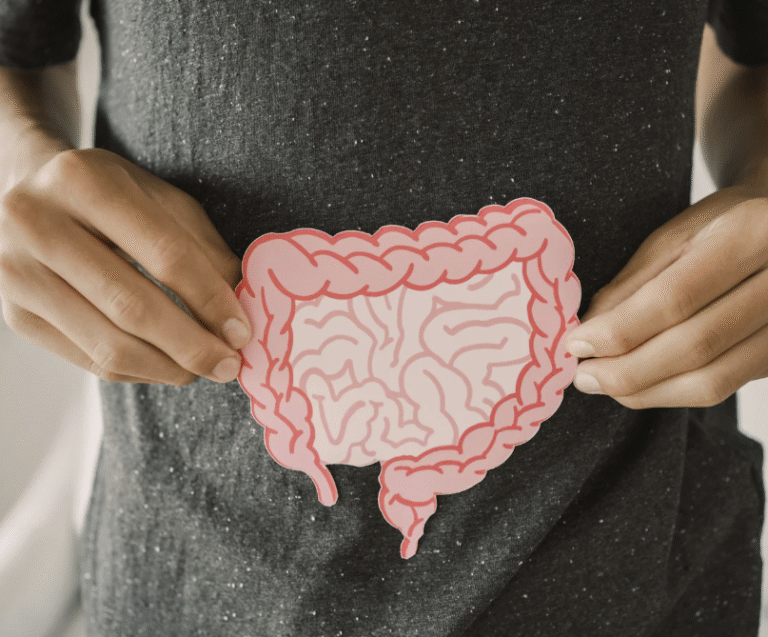Understanding the Link Between Gut and Brain
For decades, research on Autism Spectrum Disorder (ASD) has focused on brain development, genetics, and behavioral interventions. Recently, however, scientists have begun to explore a new piece of the autism puzzle—the gut-brain axis, a complex communication system between the gastrointestinal (GI) tract and the nervous system. This connection reveals that the gut and brain are in constant communication, influencing everything from mood and attention to digestion and immune response.
Gastrointestinal issues such as constipation, diarrhea, bloating, and abdominal discomfort are extremely common in individuals with autism. Some studies estimate that as many as nine out of ten autistic individuals experience GI symptoms, which can directly impact behavior, sleep, and overall comfort. Interestingly, the same genetic and neurological factors that shape brain development may also influence the gut. This shared biological link suggests that both systems are deeply intertwined, offering new insight into how autism manifests across the body—not just in the brain.
How the Gut-Brain Axis Works
The gut-brain axis operates through several interconnected pathways:
- The nervous system, especially the vagus nerve, which carries messages between the gut and brain.
- The immune system and inflammatory molecules that can signal distress or imbalance.
- Microbial metabolites — chemical compounds produced by gut bacteria that can alter brain chemistry.
When the gut microbiome (the diverse community of microorganisms in the digestive tract) is disrupted, it may affect how the brain develops and processes information. Research has shown that children with ASD often display differences in their gut microbiota compared to neurotypical peers. For example, altered levels of certain microbial metabolites — such as those derived from tryptophan — have been found to correlate with brain activity in areas responsible for emotion and sensory regulation. These findings point to a fascinating conclusion: what happens in the gut can directly influence what happens in the brain.
Why This Matters for Therapy and Daily Life
Understanding the gut-brain connection is more than a scientific breakthrough—it has practical implications for therapy and daily care.
- Holistic assessment: When evaluating developmental or behavioral concerns, clinicians and families should consider gut health alongside communication, sensory, and emotional factors.
- Behavioral and sensory regulation: GI discomfort can contribute to anxiety, meltdowns, and sensory avoidance. Addressing gut-related pain or imbalance may make therapy more effective and reduce behavioral stressors.
- Nutrition and diet: While diet alone is not a cure, a well-balanced, fiber-rich diet with adequate hydration can support a healthier microbiome. When guided by medical and dietary professionals, nutrition adjustments may improve comfort and attention.
- Collaborative care: Occupational, physical, and speech therapists can benefit from partnering with GI specialists or dietitians. This collaboration ensures that physical discomfort doesn’t interfere with participation, feeding progress, or attention in therapy sessions.
- Early intervention potential: Because the gut-brain axis plays a role in neurodevelopment, early attention to gut health may indirectly support progress in communication, motor skills, and social engagement.
What Families Can Do
If your child is diagnosed with autism and experiences frequent GI or sensory challenges, there are several steps you can take to support both comfort and development:
- Track and share GI symptoms. Note any constipation, reflux, or stool changes, and discuss these with your pediatrician or GI specialist.
- Address feeding sensitivities. If your child avoids certain textures or food groups, consider working with a feeding therapist. These preferences may stem from discomfort, not just pickiness.
- Incorporate movement-based strategies. Activities that strengthen the core or encourage sensory regulation—such as swinging, jumping, or gentle stretching—can promote healthy digestion by stimulating the vagus nerve.
- Promote hydration and variety. Encourage a diet that includes multiple sources of fiber and fluids, tailored to your child’s sensory comfort and medical needs.
- Foster communication between professionals. Ensure your therapy team and medical providers regularly share insights, as this unified approach can help uncover links between GI health, mood, and behavior.
Connection Between Gut Health and Autism Development
The gut-brain axis in autism is an evolving area of research with exciting implications for future care. Although it’s not a single solution, recognizing how gut health intersects with sensory processing, emotional regulation, and neurological growth helps professionals and families take a whole-body approach to support.
At Crawl Walk Jump Run Therapy Clinic, we understand that every child’s progress depends on more than isolated skills. Our approach integrates movement, sensory processing, communication, and overall wellness to create a strong foundation for growth. By acknowledging the gut-brain connection, we help families see how interconnected systems influence learning, behavior, and comfort.
If you’d like to explore how gut-brain awareness fits into your child’s sensory, motor, or language therapy plan, contact our team for a consultation. Together, we can develop a customized strategy to support your child’s full potential—mind, body, and gut included.




